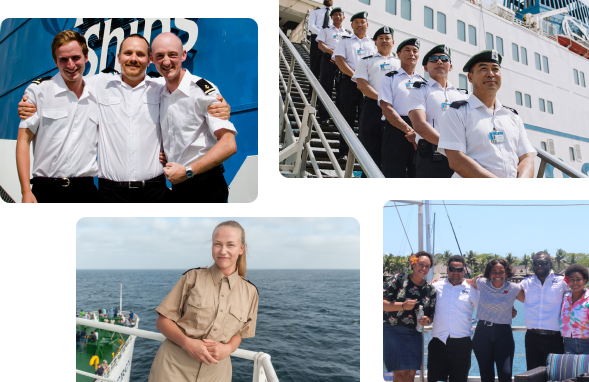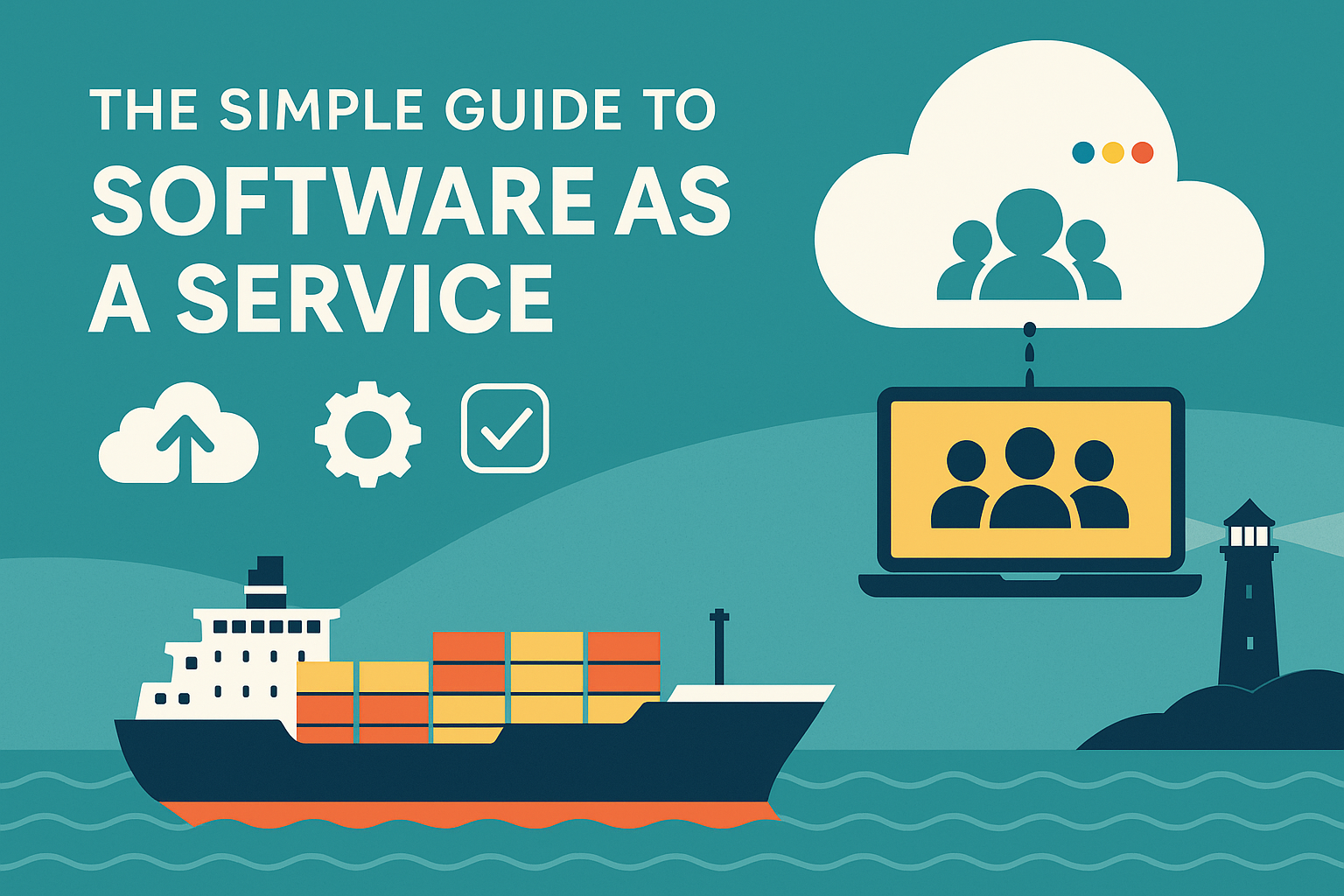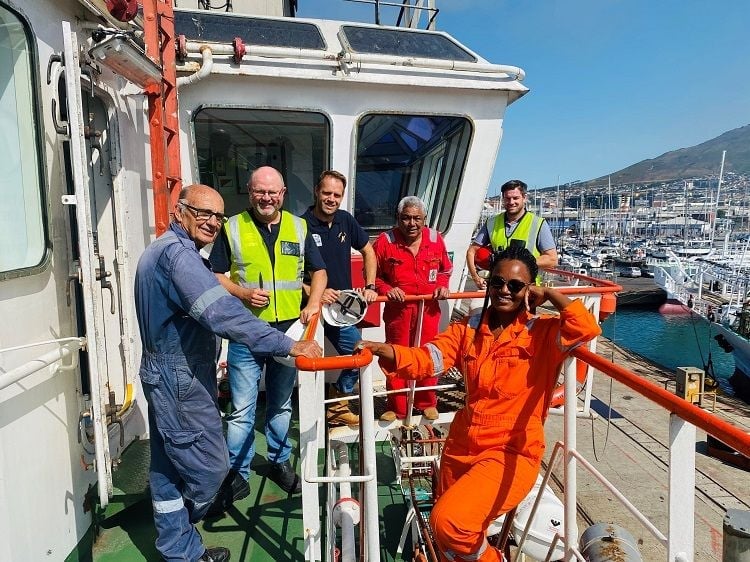Adapting to Remote Maritime Recruitment: Challenges & Solutions
Oct 10, 2024 · 13 mins read ·
Maritime Recruitment
The global shift towards remote work has transformed industries worldwide, including commercial shipping, where maritime recruitment traditionally required face-to-face assessments and evaluations.
The maritime industry, with its responsibility for transporting over 80% of the world’s goods, relies heavily on the recruitment of both competent crew members and efficient shore-based staff to ensure operational efficiency and safety.
However, as with many other sectors, the COVID-19 pandemic and advancements in digital technology have accelerated the adoption of remote recruitment processes. While this transition brings certain advantages, it also presents unique challenges in maintaining the quality and standards of maritime hiring.
Read more: 2025 Recruitment Trends: What Maritime Recruiters Must Know
As a company that works closely with Crew Managers and Manning Agents - some of whom work remotely - we feel that we’re well placed to explore the shift towards remote maritime recruitment, examine the challenges it brings, and outline solutions that can help your company maintain its high recruitment standards.
The shift to remote maritime recruitment
Historically, maritime recruitment has been a labor-intensive process requiring physical interactions. As a Crew Manager, you probably relied on in-person interviews, practical skill tests, medical examinations, and document verifications to ensure your seafarer candidates met the necessary standards.
While these face-to-face methods allowed for comprehensive assessments of applicants, they were also time-consuming, costly, and geographically limiting.

With the rise of digital platforms and the global health crisis driving an increased reliance on remote work, the maritime industry has had to rethink its traditional recruitment practices.
Remote recruitment offers several advantages, including a wider talent pool of seafarers to choose from, faster processing times, and reduced logistical costs. Digital platforms, such as Martide’s maritime crew management and recruitment software solution, now allow Crew Managers and Manning Agents to assess candidates from any part of the world, reducing the need for expensive travel and enabling more efficient hiring cycles.
Read more:5 Ways to Accelerate Your Time to Hire in Maritime Recruitment
Despite these benefits, remote recruitment also introduces a set of challenges that require careful attention to ensure the quality of hires is not compromised.
Challenges in remote maritime recruitment
First of all we’re going to take a look at what the challenges of running your maritime recruitment operations remotely are, whether you’re working from home or from a different location to your coworkers. Keep reading to see our solutions to these challenges further down the page.
A lack of personal interaction
One of the most significant challenges in remote maritime recruitment is the absence of in-person interaction. In traditional recruitment settings, face-to-face interviews allow hiring managers to assess body language, communication skills, and other non-verbal cues that are crucial in determining a seafarer’s suitability for a role.
Remote interviews conducted over video conferencing platforms can often miss these subtle yet important indicators, making it more difficult to fully gauge a candidate's interpersonal skills and professionalism.

Read more:How to Host an Online Maritime Recruitment Interview
Moreover, the maritime industry relies on teamwork and strong communication among crew members who often work in high-stress and isolated environments. While technical skills are essential, soft skills such as leadership, adaptability, and effective communication are equally important.
Assessing these soft skills through virtual platforms presents a challenge, as video interviews may not offer the same depth of insight as in-person interactions.
Technical limitations
The effectiveness of remote maritime recruitment depends heavily on the reliability of technology. However, poor internet connections, outdated hardware, and unfamiliarity with digital tools can hinder both candidates and recruiters during remote interviews.
In regions where internet infrastructure is less developed, seafarers may face challenges in accessing stable video conferencing platforms, making the recruitment process more difficult and potentially excluding qualified applicants from certain areas.
Additionally, certain technical and practical assessments - such as simulations of maritime scenarios - are difficult to replicate remotely.
In-person assessments provide a more hands-on evaluation of a candidate’s problem-solving and technical abilities, which may be lost in virtual testing environments.
Verifying candidate credentials
As you know, ensuring the authenticity of a seafarer’s qualifications, certifications, and background is a crucial aspect of maritime recruitment. In a remote recruitment setting, verifying credentials can become more challenging, especially in regions with less established regulatory frameworks.

And as a Crew Manager or Manning Agent, you need to rely on digital documentation and third-party verification services, which may introduce delays or potential risks of fraud.
Given the safety-critical nature of maritime operations, hiring unqualified personnel can have severe consequences.
Verifying that candidates possess the proper licenses, certifications, and medical clearances is vital, and ensuring that these processes remain robust in a remote setting requires additional diligence.
Read more:How to Organize & Store Your Seafarers' Travel Documents
Building trust and engagement
Remote recruitment processes often lack the personal touch that comes with in-person interviews and assessments. Seafarers may feel less connected to the hiring company when interactions are limited to video calls and email exchanges.
Building trust and establishing a positive employer-employee relationship can be more difficult when the recruitment process is fully remote. This lack of engagement can lead to lower retention rates, as seafarers may feel less committed to a company they have only interacted with virtually.
The good news is, there are steps you can take to increase your crew retention rate. Building trust is one, but there are other ways to ensure that good seafarers return to work for you for subsequent contracts. These include asking candidates for feedback about the hiring process and using professional crewing software that makes that process smoother.

Additionally, candidates may feel uncertain about the working environment and company culture if they have never visited the office or met their future crew members in person.
This is particularly important for younger workers in the maritime industry, where factors such as working conditions and company culture are often the deciding factor when choosing whether to accept a position.
Solutions for effective remote maritime recruitment
While remote recruitment presents unique challenges, as someone who works in the maritime industry you can implement several strategies to ensure the hiring process remains effective and that high standards are maintained. Here we’ll look at some of them.
Leverage digital tools for better assessment
To overcome the limitations of remote recruitment, your shipping company or manning agency should invest in advanced digital tools that allow for more comprehensive candidate assessments.
Video interviewing platforms with built-in AI and behavioral analytics can help recruiters in the maritime industry better understand a candidate’s communication style, body language, and overall suitability for the role.
Additionally, interactive simulation tools can be used to test technical skills in real-time, offering a virtual alternative to in-person practical assessments.
Employers should also consider using digital platforms that allow for remote proctoring of written exams or skills tests, ensuring that candidates are fairly assessed from anywhere in the world.

For example, Martide’s maritime crew management software has an inbuilt Forms feature which allows you to create your own interviews so that you can ensure you've covered all the points and questions that are important to your company.
Strengthen credential verification processes
Remote maritime recruitment demands a more robust approach to verifying a seafarer’s credentials. This can be achieved by partnering with accredited third-party verification services that specialize in checking maritime licenses, certifications, and medical records.
Digital verification tools, blockchain-based credentialing, and secure platforms for document submission can further ensure that candidates are qualified and compliant with international regulations.
As a digital crewing system Martide can help. Our maritime crew management software allows both employers, manning agencies and seafarers to upload and store their contracts, certifications, travel and medical documents and other paperwork in our secure, Cloud-based software solution.
This not only makes life easier and more efficient for everyone - especially when you’re working remotely - but increases security too.
Additionally, maritime companies should implement internal policies that require periodic reviews of qualifications and certifications, especially for crew members in safety-critical positions.

Enhance communication and engagement
To build stronger connections with seafarers in a remote setting, as a Crew Manager or a Manning Agent, you need to prioritize clear and consistent communication throughout the recruitment process.
Video interviews should be supplemented with virtual tours of vessels (if possible) or your facilities, allowing candidates to get a better sense of the working environment.
Hosting virtual Q&A sessions with current employees or crew members is a nice idea as this can also give prospective hires insight into company culture and day-to-day life onboard.
Again, this will help you increase those all-important retention rates as new seafarers, especially Cadets and those seeking entry level positions at sea, will know what to expect.
In addition, onboarding processes should be adapted to maintain engagement with new hires. Virtual onboarding programs that include training, mentorship, and regular check-ins can help bridge the gap between remote recruitment and the start of a crew member, or a shore-based employee’s, tenure.
Develop contingency plans for technical issues
Given the importance of reliable technology in remote maritime recruitment, you need to develop contingency plans to address potential technical failures.
This includes having backup communication platforms, alternative methods for interviews (such as phone calls), and clear protocols for rescheduling if connectivity issues arise.

Ensuring that both you and your candidates are familiar with the digital tools being used is also essential. Providing some basic technical support and guidance can help mitigate issues related to unfamiliarity with software or hardware.
Embrace a hybrid approach
While remote maritime recruitment offers many advantages, working from home has both pros and cons and it may not be suitable for every stage of the hiring process. A hybrid approach, where certain stages are conducted remotely and others in person, can help strike a balance between efficiency and thoroughness.
For example, initial interviews and assessments can be conducted remotely, with final evaluations or medical exams taking place in person.
This approach allows companies to benefit from the flexibility of remote recruitment while ensuring that key steps - such as verifying critical skills or assessing team dynamics - are done face-to-face.
Read more: Building a Successful Hybrid Maritime Recruitment Team
Are you ready to adapt to remote maritime recruitment?
As we've covered, adapting to remote maritime recruitment presents both challenges and opportunities. While the absence of in-person interaction, technical limitations, and credential verification hurdles can complicate the process, leveraging digital tools, strengthening communication, and adopting hybrid recruitment models can help your company maintain its high standards of hiring.
By embracing these solutions, shipping companies and manning agencies can continue to recruit the best talent, both for your vessels and your shore-based operations, ensuring the safety and efficiency of your global maritime operations.

And whether your company is working fully remotely, your people are based in different locations, or you’re working to a hybrid model with people coming into the office only a couple of days a week, Martide can help you improve your efficiency.
When it comes to both maritime recruitment and crew planning, our software as a service solution helps you manage your processes from initially finding crew to signing contracts and then planning crew changes and arranging travel.
We work on a sensible pricing structure which allows you to scale up or down depending on how many seafarers you have onboard at any given time, while certain features - such as our maritime recruitment software and posting your seafarer job adverts are absolutely free.
If you’d like to find out more about how Martide’s maritime crew management software can help your small to medium-sized shipping company or manning agency, get in touch with us for a friendly chat or book your free no-strings attached demo here.

Eve Church
Eve is Martide's content writer, publishing regular posts on everything from our maritime recruitment and crew planning software to life at sea. Eve has been writing professionally for more than two decades, crafting everything from SEO-focused blog posts and website landing pages to magazine articles and corporate whitepapers.
UK

is the only site for maritime jobs



